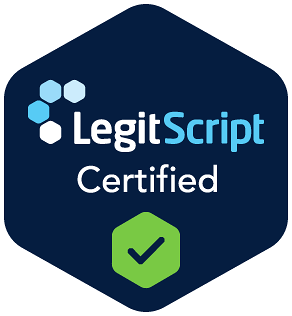Legal Protections for Recovering Addicts
In the domain of addiction recovery, understanding your legal rights is an essential first step towards achieving a substance-free life. There exist federal laws that protect individuals with substance use disorders, ensuring their access to treatment and guarding against discrimination issues. The Americans with Disabilities Act (ADA), for instance, categorizes addiction as a disability. It mandates that both public and private entities, including treatment facilities, provide reasonable accommodations for those recovering from substance abuse. This means that individuals cannot be denied access to treatment based on their addiction.
Moreover, the Fair Housing Act (FHA) protects people in recovery from discrimination in housing. Landlords or property managers cannot refuse to rent or sell property to someone because of their past or present substance use disorder. The Affordable Care Act (ACA) also has provisions that improve access to treatment for individuals with substance use disorders. It requires most insurance plans to cover addiction treatment, making recovery more accessible to those in need.
Workplace Rights in Addiction Recovery
Ensuring a fair and supportive workplace environment is essential for those journeying through addiction recovery. Individuals should know they have rights to workplace accommodations and employee assistance, which can play a pivotal role in their recovery process. Under the Americans with Disabilities Act (ADA), businesses with 15 or more employees must provide reasonable accommodations for employees dealing with substance use disorders. These accommodations may include flexible schedules, time off for recovery-related activities, or adjustments to duties.
Employee assistance programs (EAPs) are another valuable resource. These programs typically offer free and confidential assessments, short-term counseling, referrals, and follow-up services to employees who have personal or work-related problems. They also extend their services for issues affecting mental and emotional well-being, such as alcohol and substance use disorders. Workplaces should foster an atmosphere of support and understanding, recognizing addiction as a chronic disease that requires ongoing care. The goal should be assisting employees in their recovery while maintaining productivity and a positive work environment.
Confidentiality and Privacy Laws
Steering the path to recovery involves a myriad of challenges, and maintaining personal privacy is certainly one of the most vital aspects. It is important to understand that laws have been put in place to protect the confidentiality of those seeking help for substance use disorders. The cornerstone of these laws is the principle of informed consent. This means that, before sharing any information about your addiction or treatment, healthcare providers must obtain your explicit permission.
Your patient records, which contain sensitive information about your health and treatment, are safeguarded under these laws. Without your informed consent, these records cannot be disclosed to anyone, including employers, family, or friends. These privacy laws are not just a legal obligation, they are a fundamental part of building trust between patients and healthcare providers. They guarantee that individuals can seek treatment without fear of stigma or discrimination. Understanding these rights is an empowering step on the path to recovery.

Final Thoughts
To summarize, the legal protections and rights afforded to individuals in addiction recovery are essential for fostering their wellbeing and recovery journey. These rights, extending from workplace accommodations to privacy protections, enable individuals to seek help without fear of stigmatization or discrimination. Recognizing these rights is imperative, not only to empower those in recovery, but also to cultivate a society that supports and values the health and recovery of all its members.
If you or someone you care about is grappling with substance abuse, remember that support is within reach. At Bluecrest, we provide an intensive outpatient program customized to suit individual needs, fostering recovery and optimism. Our team of devoted professionals is dedicated to offering the guidance, support, and tools needed to navigate the path to sobriety.
Frequently Asked Questions
Does Health Insurance Cover Addiction Treatment Programs?
Yes, health insurance often covers addiction treatment programs. The extent of coverage varies depending on the specific insurance plan and the nature of the treatment. It’s important to review your policy details or contact your insurance provider to understand what treatment options are covered. Federal laws like the Affordable Care Act and the Mental Health Parity and Addiction Equity Act guarantee certain protections for individuals seeking substance use disorder treatment.
Can I Lose Custody of My Children Because of Attending Recovery Programs?
Attending recovery programs does not automatically lead to loss of child custody. Courts focus on the best interest of the child, and recovery demonstrates responsible action towards sobriety. However, the specifics can vary by jurisdiction and individual case circumstances. It’s advisable to consult with a legal professional to understand your rights and potential outcomes in your specific situation.
What Happens to My Criminal Record After Successful Addiction Recovery?
Upon successful addiction recovery, your criminal record isn’t automatically cleared. However, the expungement process can help you clear certain convictions related to your past substance abuse. Rehabilitation benefits extend beyond health; they can potentially aid in legal areas too. Steering through this process can be complex, but it’s a key step towards restoring your rights and embracing a second chance at life. Consulting with a legal professional is advised to understand your eligibility and the process fully.
Are There Any Travel Restrictions for Individuals in Addiction Recovery?
Individuals in addiction recovery generally face no automatic travel restrictions based on their recovery status. However, certain legal considerations may affect travel ability, such as probation terms or outstanding legal issues. It’s advised to consult with legal counsel to understand specific travel safety implications tied to personal circumstances. Always remember, maintaining recovery routines and support systems while traveling is essential for ongoing sobriety.
Can I Be Denied Housing Due to My History of Addiction Recovery?
Under the Fair Housing Act, it is illegal for landlords to discriminate based on disability, which includes a history of addiction recovery. Challenges may arise due to addiction stigma during the rental application process. However, you are protected by law and entitled to fair treatment. Seek recovery support and legal counsel if you experience housing discrimination, as your journey to recovery should be met with understanding, not obstacles.



